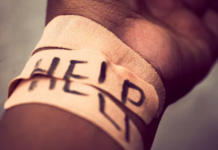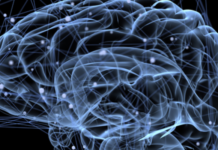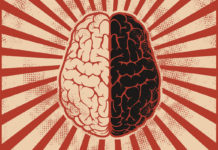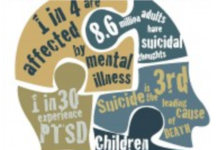Study Investigates Long-Term Effects of Social and Emotional Learning Programs
Social and Emotional Learning (SEL) programs have gained popularity in U.S. schools in recent years. A new study examines the nature and longevity of their impact on students.
Leading Researchers Critique Current Paradigm for Studying ‘Schizophrenia’ Risk
Re-conceptualizing the Clinical-High-Risk/Ultra-High-Risk Paradigm: A critique and reappraisal
Why do People Self-Harm? You Asked – Here’s the Answer
In this piece for The Guardian, Jay Watts explores the social and societal factors that often lead to self-harm and explains how psychiatric labeling can exacerbate self-harm.
"Self-harm...
The Smartphone Psychiatrist
In this piece for The Atlantic, David Dobbs delves into the life of former NIMH director Thomas Insel, his critiques of research within the field of...
Kate Millet Obituary
From The Guardian: Kate Millet, the radical feminist who launched the second wave of the women's liberation movement, died on September 6th. Millet was also...
The Concept of Schizophrenia is Coming to an End – Here’s Why
From The Conversation: Many researchers are beginning to acknowledge that the concept of "schizophrenia" as a discrete, hopeless, and deteriorating brain disease does not exist. In...
Pledge Support for Changes in Understanding of Psychosis
From Critical Psychiatry: The International Society of Psychological and Social Approaches to Psychosis (ISPS) has produced a 'Liverpool Declaration' stating that psychosis needs to be...
First Systematic Review of Leading School-Based Mental Health Programs
Results reflect moderate to strong evidence in support of the non-pharmacological school-based interventions reviewed in the study.
Psychiatry’s Necessary Shadow: The Philosophy of Mental Illness
In this piece for Medium, Andrés Ruiz explores the reasons that psychiatry is the only medical speciality with an anti-movement and a history of sustained criticism....
Criticism of Coercion and Forced Treatment in Psychiatry
A recent editorial, published in BMJ, argues there is an increase in coercive measures in psychiatry that are damaging to individuals diagnosed with mental illness.
Researchers Question the “Adequacy and Legitimacy” of ADHD Diagnosis
A new article, just published online in the journal Emotional and Behavioural Difficulties, presents research suggesting that the diagnosis of ADHD is philosophically inadequate.
The ‘A’ Word
In this piece, Keris Myrick critiques the usage of the word "anosognosia" and reflects on its power to harm the people it is directed...
Loneliness as Lethal: Researchers Name Social Isolation a ‘Public Health Threat’
Researchers present loneliness as a health threat facing a growing number of Americans.
The Curious Conundrum of Freud’s Persistent Influence
From The New York Times: Frederick Crews' new book The Making of an Illusion portrays Freud as relentlessly self-interested, irredeemably immoral, and interminably mistaken. Perhaps Crews...
ADHD Diagnosis Based on “Illogical Rhetoric,” Analysis Claims
In a philosophically rigorous article, Spanish researcher Marino Pérez-Álvarez examines the logic of attention-deficit hyperactivity disorder (ADHD).
More to Happiness Than Feeling Good, Study Finds
Cross-cultural data suggest that happiness involves feeling the emotions one deems as right, in accordance with personal and cultural values.
A Mad World: Capitalism and the Rise of Mental Illness
From Red Pepper: Capitalism produces much of the mental distress that is categorized as "mental illness" by turning human creativity and connectivity into social isolation,...
Indescribable You
In this piece for Aeon, Carlin Flora critiques sociologists' and psychologists' attempts to categorize and classify people's personalities into distinct groups and profiles, advocating that we...
We Need to Change the way we Think About Alcoholism
From Massive: The public generally conceptualizes alcoholism as a biological brain disease and rejects the notion that social and cultural factors may contribute to addiction....
Researchers Argue that ‘ADHD’ Doesn’t Meet DSM Definition of a Disorder
New research questions whether the diagnosis of ADHD even meets the criteria for a disorder, as set out in the manuals used by the medical and psychiatric fields.
The Therapist who Saved my Life
In this creative nonfiction piece for Literary Hub, one woman shares her story of trauma, depression, and suicidality, and recounts the unconventional approach of the...
Researchers Challenge Popular Beliefs About Adolescent Risk Taking
Adolescent risk taking is explored contextually, beyond models of brain imbalances and adverse consequences.
Social Prescribing May Improve Self-Esteem and Mental Well-Being
Systematic review suggests social prescribing benefits individuals with mental and physical health issues, but more program evaluations are needed.
New Collaborative and Feedback-Informed Family Therapy Approach
Attempts to bridge the gap between research and practice result in a family therapy approach which employs clients as co-researchers.
What If We Are All Wrong About Mental Illness?
From Thoughtful Living: The biomedical model of psychiatry, along with the DSM, is deeply flawed and can often be misleading. To improve, mental health services...

































